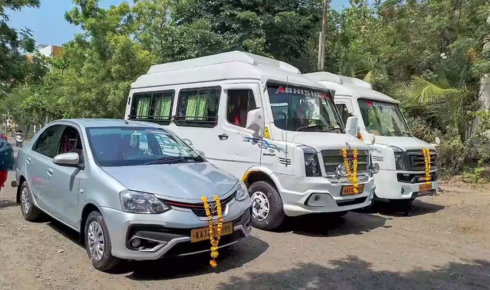
30 Essential Q&A on Responsible Travel in 2024
1. What is sustainable travel?
Answer: Sustainable travel means to minimize negative environmental, cultural, and social impacts that occur through tourism. This approach encourages thoughtful decisions that can enhance the benefits to local communities, preserve ecosystems, and minimize carbon footprint for enriching experiences while traveling.
2. How do I minimize my carbon footprint during a trip?
Answer: Minimize your carbon footprint by doing
Take the train or bus for short trips rather than flying.
Take direct flights since they burn less fuel.
Use eco-friendly hotels and activities.
Carbon offset through carbon offsetting programs.
3. What are eco-friendly accommodations?
Answer: Eco-friendly accommodations are hotels, resorts, or hostels that employ sustainable practices such as:
Conservation of energy and water
Use of renewable sources of energy
Waste minimization through recycling and composting
Local and organic food supply
Sustainable building materials and designs.
4. How to contribute to the local community through travel?
Answer: Contribute to the local community through:
Buying from local artisans, including handmade goods
Eating in locally-owned restaurants
Staying in locally-managed guesthouses or homestays
Engaging in cultural activities managed by local tour guides
Seeking local services for transportation and tours
5. Why would you choose the most environmentally friendly transportation options?
Answer: Eco-friendly transport reduces air pollutants, carbon footprints, among other negative effects on the environment. These options include:
Using public transport buses, trains, trams)
Carpooling or hitchhiking.
Cycling or walking when feasible.
Electric vehicles (EVs) for personal travel.
6. What is responsible wildlife tourism?
Answer: Responsible wildlife tourism is the act of viewing animals in their natural habitats without harming or exploiting them. This includes:
Avoiding attractions that mistreat or hold animals captive.
Selecting sanctuaries or conservation programs that put animal welfare first.
Educating yourself on ethical wildlife practices.
7. How can I minimize plastic waste while traveling?
Answer: Minimize plastic waste by:
Carry refillable bottles for water and keep filling them constantly.
Reusable bags to take for grocery shopping
Single-use plastic products like straws, cutlery, and bottles.
Use products that have minimal or recyclable packing.
8. What are carbon offset programs, and should I use them?
Answer: Carbon offset programs allow travelers to compensate for their carbon emissions by investing in projects that reduce or absorb greenhouse gases, such as reforestation or renewable energy initiatives. Many airlines and travel companies offer the option to offset your emissions during booking.
9. How can I make my travels more eco-friendly without compromising comfort?
Answer: You can travel sustainably while maintaining comfort by:
Choosing eco-luxury accommodations that prioritize sustainability.
Traveling with lightweight, reusable gear (e.g., solar chargers, bamboo cutlery).
Enjoying nature-based experiences like hiking or cycling that don’t require heavy infrastructure.
Opting for off-the-beaten-path destinations to avoid overcrowding.
10. What is “over-tourism,” and how can I avoid contributing to it?
Answer: Over-tourism refers to excessive tourism that strains local infrastructure and negatively impacts the environment and communities. To avoid contributing:
Visit lesser-known destinations or travel during off-peak seasons.
Stay in less crowded areas or neighborhoods.
Divide your visits to less popular attractions.
Avoid mass tourism activities that damage natural sites.
11. How can I reduce food waste during a trip?
Answer: To reduce food waste:
Order lesser portions at restaurants so that leftovers are avoided.
Bring with you snacks that will not expire or perish quickly.
Avoid too much packaging and carry your own containers for take-out food.
Support food banks or donation programs that reduce food waste in tourist areas.
12. How do my travel decisions affect local cultures?
Answer: Tourism, if not controlled, may sometimes result in cultural dilution, exploitation, or loss of authenticity. To be respectful:
Learn the local customs, traditions, and values before your visit.
Avoid practices that are offensive to the locals (e.g., inappropriate dress, taking pictures of sacred sites).
Respect the local traditions and ensure that your activities do not disturb the daily routines.
13. What are the advantages of slow travel?
Slow travel foster one destination for longer periods. The result of such is the fewer number of flights and therefore lower carbon emissions. Benefits include;
Better connections with local culture.
Less environmental impact due to fewer travel transfer.
More time to understand and appreciate the destination.
14. How do I know if a destination is eco-friendly?
Answer: Look for destinations that have some form of certification or initiatives, like:
Green Globe or EarthCheck certifications for hotels and tourism providers.
Local sustainability actions (such as waste reduction initiatives, renewable energy). Government sustainability plans or eco-friendly city guide. 15. How do I support sustainable tourism operators? Answer: Select travel companies whose sustainability is valued in areas including:
Research their environmental and ethical practices.
Book tours which promote conservation and responsible wildlife viewing.
Make sure they are part of organizations in sustainable tourism, such as the Global Sustainable Tourism Council, GSTC. 16. How can I decrease my use of water on trip?
Answer: Minimize water consumption by:
Showering less and using towels in hotels repeatedly.
Not engaging in activities that guzzle much water (such as private pools).
Using devices that save water, if they exist.
Showing awareness of the availability of water sources in areas where drought or lack of water exists.
17. What are some good eco-friendly travel products to bring?
Answer: Eco-friendly travel products are:
Reusable water bottles, coffee cups, and utensils.
Biodegradable toiletries and sunscreens.
Solar-powered chargers or an eco-friendly power bank.
Recycled material-based luggage.
18. Can travel sustainable be inexpensive?
Answer: Absolutely, for with:
Picking destinations which lie close to you or accessible on train/ bus.
Travelling off the peak seasons avoid inflated rates
Staying at eco-hostels, guest houses, camping grounds as opposed to upscale hotels.
Riding the local transport/bicycle instead of riding taxis and or car hires
19. How do I make my flights sustainable?
Answer: Do your flights sustainability by booking,
Direct flight flights are less gaseous to burn, less fuel burning capacity.
Traveling with airlines that have sustainability commitments (e.g., sustainable aviation fuel).
Offsetting your carbon emissions through airline programs or third-party services.
Packing lightly to reduce the fuel consumption of the plane.
20. What is sustainable tourism certification, and how can I find it?
Answer: Sustainable tourism certifications are awarded to companies or destinations that adhere to certain environmental, social, and economic criteria. Look for certifications like:
Green Key
Green Globe
EarthCheck
Travelife for hotels and tourism operators.
21. What is the contribution of local guides to sustainable travel?
Answer: Local guides can contribute to sustainability by:
Ensuring an authentic experience that supports the local economy.
Educating visitors on cultural and environmental preservation.
Organizing tours with an eye to eco-friendly practice, such as waste reduction and respect for local customs.
22. How do I avoid harm from souvenir shopping?
Answer: Select souvenirs that are:
Locally made and therefore directly support the artisans.
Eco-friendly and sustainably sourced (for example, recycled materials, fair trade products).
Avoid items that exploit animals or contribute to environmental damage (e.g., ivory, coral, or exotic animal skins).
23. What are some alternative travel experiences to reduce environmental impact?
Answer: Consider alternative travel experiences, such as:
Eco-tours or nature-based experiences like wildlife watching or hiking.
Volunteer travel or “voluntourism” to contribute to local conservation efforts.
Train journeys or cycling trips that reduce reliance on fossil fuels.
24. How does accommodation certification influence sustainable travel?
Answer: Certifications ensure that accommodations meet sustainability criteria, including energy conservation, waste management, and community involvement. This gives the traveler confidence that they’re supporting responsible businesses. Look for certifications such as Green Globe, LEED, or EarthCheck.
25. What is zero-waste travel?
Answer: Zero-waste travel is when one reduces or eliminates waste through:
Packing minimalist, reusable items, like bottles, bags, and containers.
Avoiding single-use plastics.
Dispose of waste through recycling or composting when possible.
Buy sustainable products and avoid excess packaging.
26. How do I locate eco-friendly restaurants when traveling?
Answer: Seek out restaurants that:
Obtain ingredients from local sources and in season.
Provide plant-based menu options or organic produce.
Practice sustainability, such as zero-waste policies, composting, and recycling.
Check apps like HappyCow or Green Restaurant Association
27. What are the benefits of “slow travel”?
Answer: Reducing your overall ecological footprint through the following:
Taking time to dive deeper into places, thus minimising the need to take multiple flights.
Encouraging slower traveling, more responsible modes of getting around (example being trains, busses, bicycling).
Forcing you into sustainable tourism operations, such as staying longer at eco-friendly sites for accommodation.
28. Why Should I Book my tours with regard to sustainability considerations?
Answer: Sustainable tours give you a protection of the environment through responsible habits.
Contribute to local economies in ethical ways.
Educate on conservation, sustainable practices, and cultural preservation.
29. How can I minimize my energy usage while traveling?
Answer: Minimize energy usage:
Switch off lights, AC, and electronics when not in use.
Select accommodation with energy-friendly designs and solar power.
Utilize energy-saving modes on devices and refrain from unnecessary chargers.
30. What are some general tips for sustainable travel in 2024?
Answer: General tips for sustainable travel include:
Pack light to minimize impact on the environment.
Travel during off-peak seasons to minimize the demand on destinations.
Educate yourself on any local sustainability issues and be a positive influencer.
Select locations with interest in sustainable tourism initiatives.



